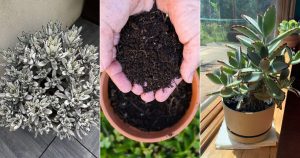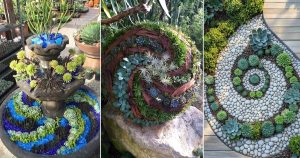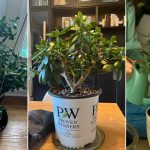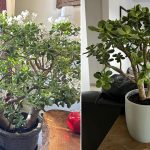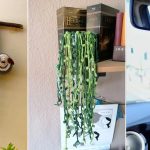Read about the Best Succulents For Fall Garden to bring life and colors while you welcome fall, because your perfect autumn garden awaits.
Do you know that succulents are sensitive to extreme cold? This is why fall is perfect for succulents, as the temperatures are not too hot and the soil is warm enough to encourage root growth. Reduced watering needs during the cooler months helps prevent rot. Unlock the list of succulents that are best for your fall garden below.
15 Succulents for your Fall Garden
1. Sedum ‘Autumn Joy’ (Stonecrop)
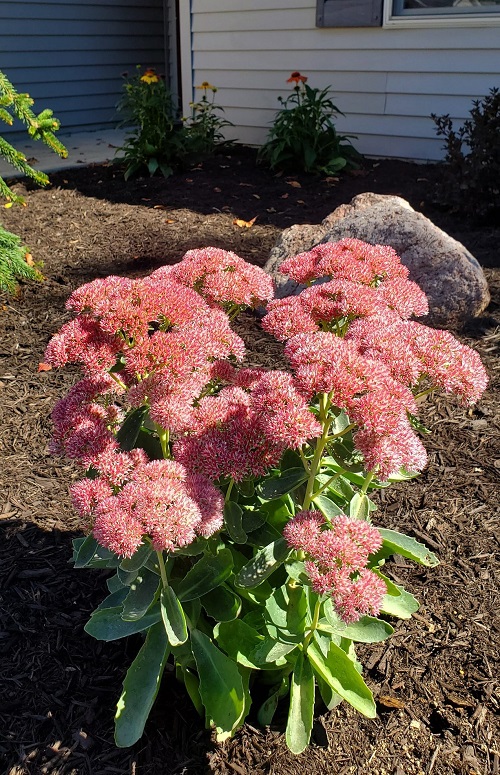
Botanical Name: Hylotelephium spectabile ‘Autumn Joy’
Sedum ‘Autumn Joy’ is a hardy succulent that thrives in the cooler months. Its cheerful, pink-to-red flowers sprinkle joy in your fall garden. It’s drought-tolerant, loves full sun, and prefers well-drained soil. Come fall or winter, this one barely asks for care and greets you year after year.
2. Mexican Snowballs
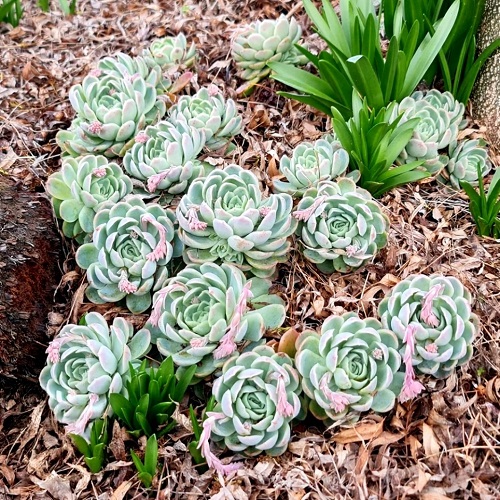
Botanical Name: Echeveria elegans
Echeveria, with its rosettes of thick, fleshy leaves, is perfect for planting outdoors during the fall. They come in a variety of colors and textures—pink, purple, and blue—but freezing cold is their Achilles’ heel. They can survive if temperatures don’t dip too low, but keep them sheltered with good drainage, and they’ll reward you with beauty.
3. Hens and Chicks
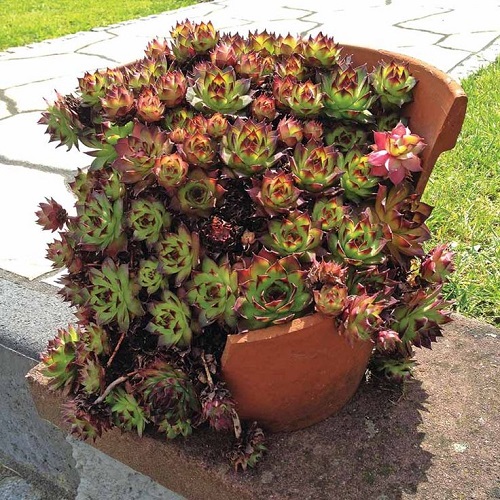
Botanical Name: Sempervivum tectorum
The “hens and chicks” stand tall as tough cookies of the succulent world, thriving in cool air. It forms rosettes with numerous “chicks” sprouting from the main “hen.” They can withstand freezing temperatures, making them ideal for outdoor fall planting in regions with chilly winters.
Did you know? They were once planted on rooftops in Europe to protect houses from lightning—that’s how tough they are!
4. Aloe Vera
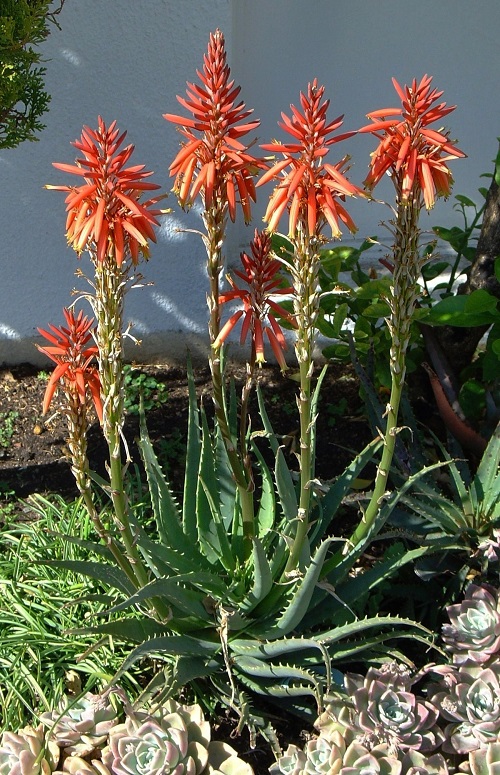
Botanical Name: Aloe barbadensis miller
Aloe Vera is renowned for its medicinal properties and its distinctive, green, spiky leaves. Although it’s better known as an indoor succulent, it can also be planted outdoors in mild climates during the fall. It likes warm temperatures and thrives in direct sunlight, but it needs to be protected from freezing conditions.
Extra Care Tip: If you plan to overwinter Aloe outdoors, mulch around the base to keep roots warm.
5. Agave Americana (Century Plant)
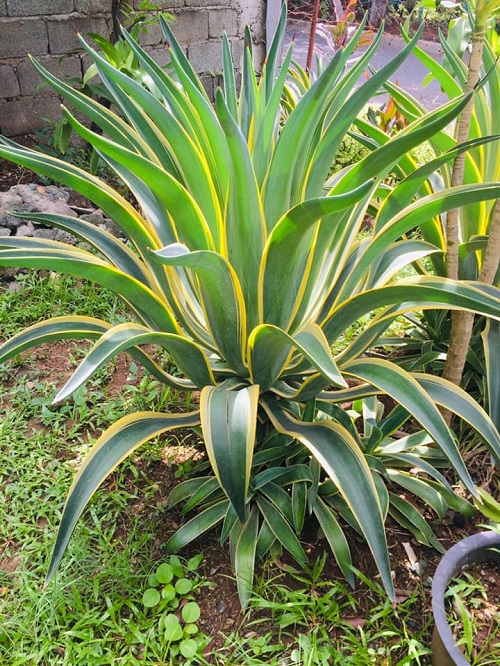
Botanical Name: Agave americana L.
Agave Americana, or the Century Plant, puts on a bold show with thick, spiky leaves that grow into a real garden spectacle. Agave is well-suited to outdoor planting in the fall as it prefers cooler temperatures for root development and is highly drought-tolerant.
Handle with care—its leaf tips are sharp enough to remind you that gardening isn’t always a bed of roses.
6. Bushveld Kalanchoe
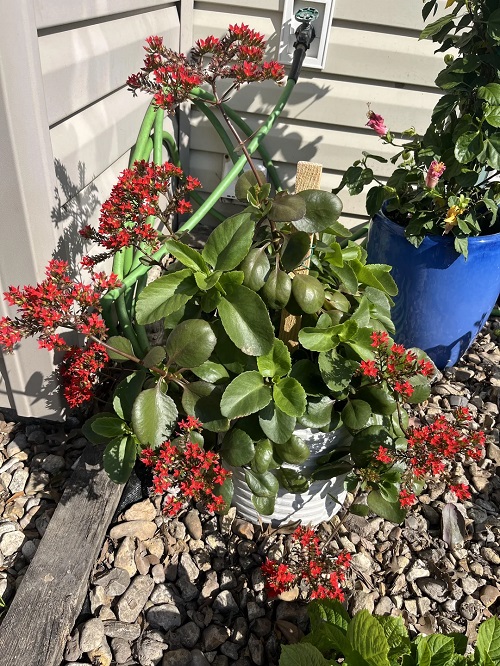
Botanical Name: Kalanchoe sexangularis
Red-Leaved Kalanchoe has a glossy, scalloped foliage on tall stems. They need great drainage and direct sun, or temperatures around 40°F that bring out bright red stress colors, on the edges and undersides of the leaves. In case of freezing temperatures, they can be brought indoors to grow on a sunny windowsill or under a grow light.
7. The Ming Thing
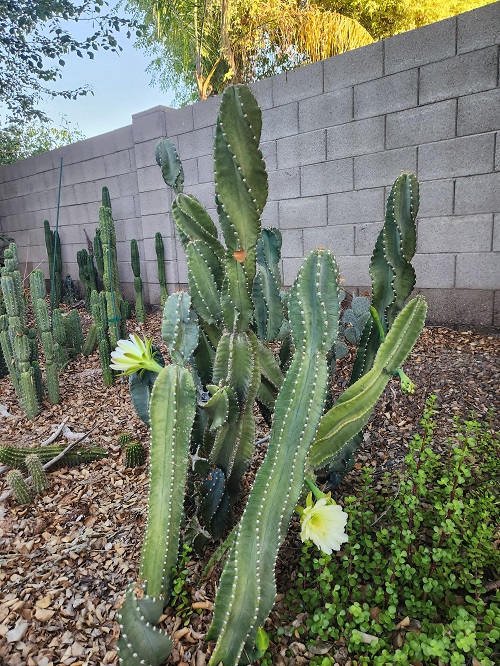
Botanical Name: Cereus forbesii
The hues can include copper, plum, salmon, and chocolate brown, sometimes with a sea green center. They hate cold temperatures and soggy soils, so use well-draining cactus soil with 50% to 70% mineral grit. Their glossy leaves shine so richly that the name ‘Molasses’ fits like a glove.
8. Molasses or Melaco
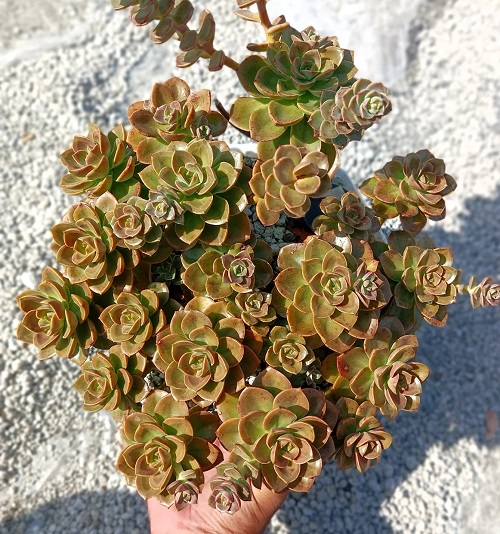
Botanical Name: Echeveria ‘Melaco’
The hues can include copper, plum, salmon, and chocolate brown, sometimes with a sea green center. They hate cold temperatures and soggy soils, so use well-draining cactus soil with 50% to 70% mineral grit. Rich, glossy leaves are the inspiration for the name ‘Melaco’, or “molasses” in Portuguese.
9. Split Rock
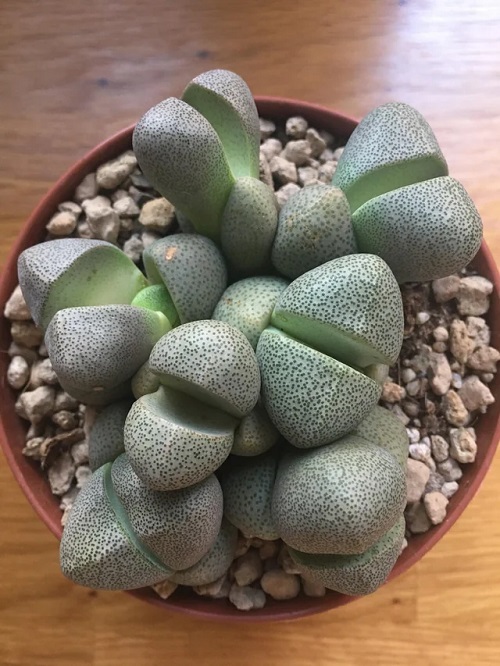
Botanical Name: Pleiospilos nelii
A grey-green mesemb that actually grows well on a windowsill. They love arid conditions and will not tolerate low-light or over-watering (prone to root rot). Need rapidly draining mineral soil with a drainage hole. Plants can be watered deeply in spring and fall, only if the soil is dry and the inner leaf pair starts to feel soft.
Caution: Their camouflage-like look makes them easy to forget in the garden—label them to avoid accidental overwatering.
10. Japanese Golden Sedum
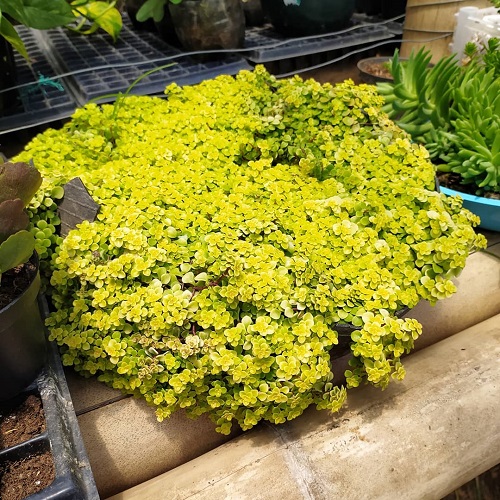
Botanical Name: Sedum makinoi ‘Ogon’
A fine, golden stonecrop that has small, round, glossy leaves gives it a delicate look, but it is frost hardy to 10°F. They thrive outdoors with partial to full sun and great drainage for young plants to grow roots. Plant in raised beds or containers with drainage holes and mix 50% coarse sand, pumice, or perlite into the soil to prevent rot.
It doubles as a golden carpet, rolling out autumn cheer right under your feet.
11. Black Pearl Stone Crop
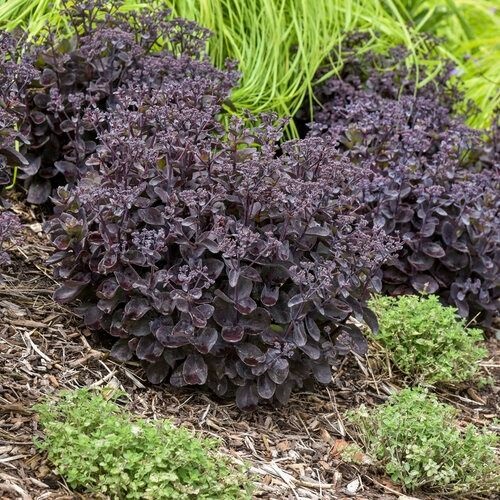
Botanical Name: Sedum album ‘Black Pearl’
A low-growing plant with small, beady leaves of bright green and dark purple tones. This little gem doesn’t blink in full sun, rocky soil, droughts, or frosts—it soldiers on. Regular water and great drainage will help young plants establish roots and spread quickly, but mature Sedum can tolerate several months of drought.
12. Beacon Hill (Fearnley)
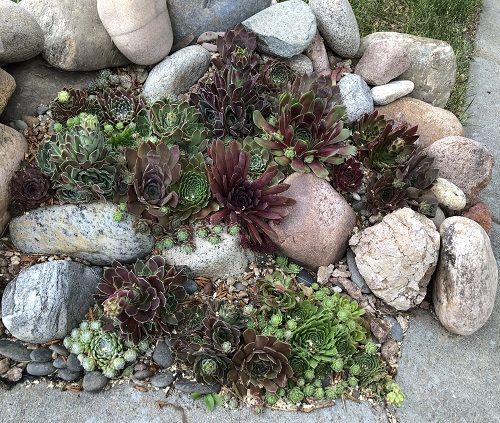
Botanical Name: Sempervivum heuffelii
Its purple bronze rosette holds its color year-round. It can have a light green center, and its leaves are outlined in a bright white margin. In addition, they are frost-hardy and drought-tolerant.
Plant them in a sunny spot with good drainage, water lightly during the growing season, and protect them from heavy rains and standing water, especially in winter.
13. Crinkle-Leaf Plant
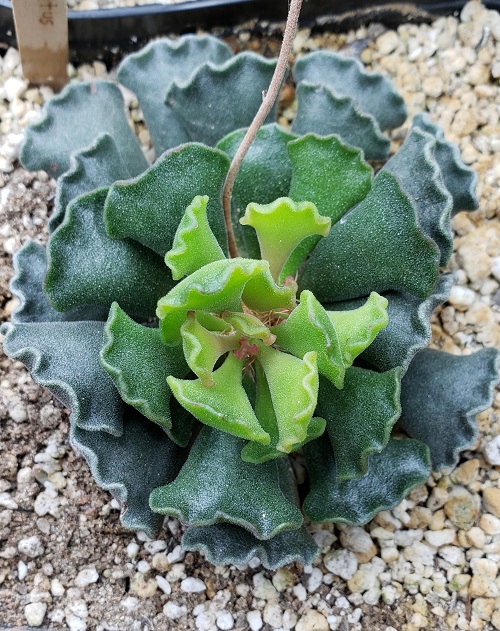
Botanical Name: Adromischus cristatus
This succulent has chunky, wavy-edged leaves with a silvery sheen and copper aerial roots that give it a furry look. Additionally, it blooms with white, tubular flowers that attract hummingbirds. To care for it, provide ample sunlight, good drainage, and infrequent water, using well-draining soil and containers with drainage holes.
14. Small Red Carpet Stonecrop
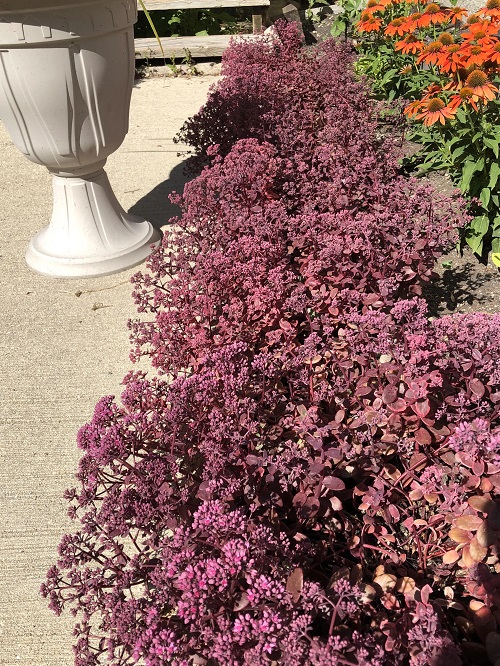
Botanical Name: Crassula pubescens ssp. radicans
A bushy, ground-cover succulent with oval leaves that turn red in bright sun. It blooms with tiny white flowers in late winter or spring and thrives in frost-free climates. This drought-tolerant succulent requires well-draining soil and thrives in full sun to partial shade, but will need to be brought indoors in areas with low temperatures.
15. Grafted Moon Cactus
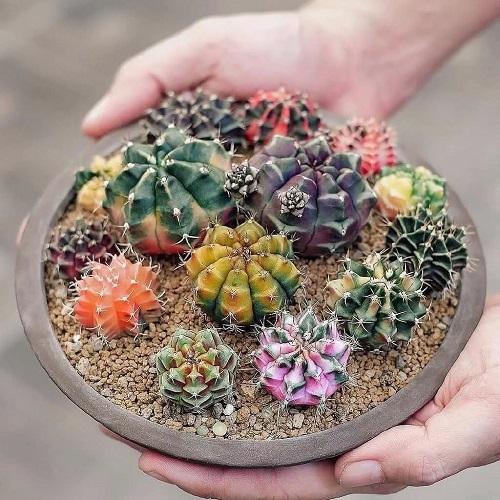
Botanical Name: Gymnocalycium mihanovichii
A unique plant that combines a bright yellow Gymnocalycium mihanovichii (lacks chlorophyll) with a green Hylocereus rootstock for survival. Like most cacti, it requires minimal watering, typically in cooler months. During the growing season, watering can be slightly increased, but let the soil dry completely between waterings.
So, which succulent will you bring home this fall? Drop your picks in the comments—after all, gardening joys are best when shared!

